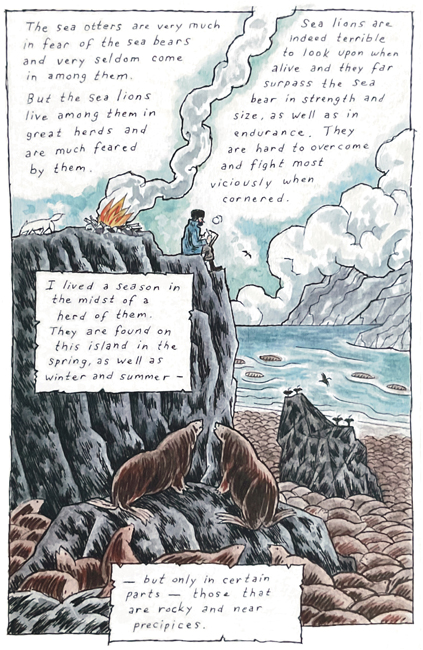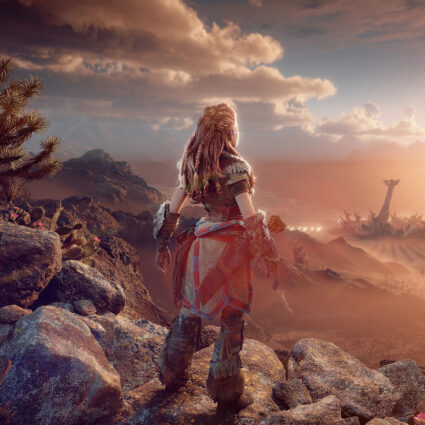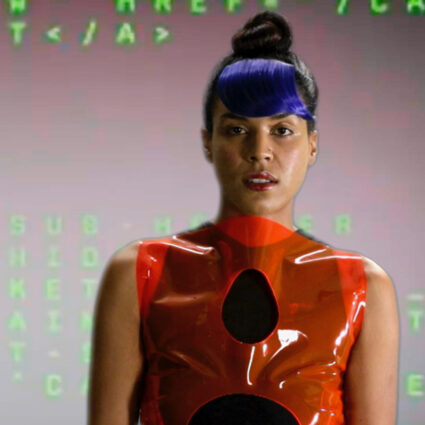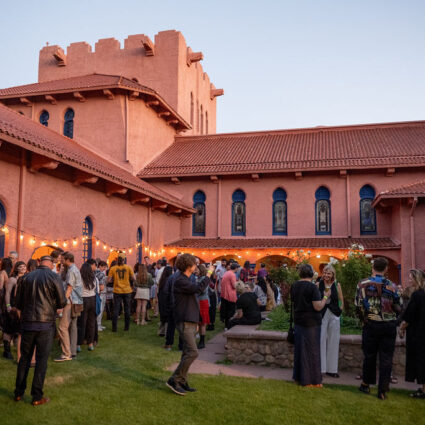Cartoonist T Edward Bak discusses making comics in an absurd world, editing as a process, and his latest comic, Sea of Time: Chapter One.

T Edward Bak is a cartoonist and illustrator exploring the crossroads of culture and the natural environment. His latest book is Sea of Time: Chapter One, out with Floating World Comics. A 2022 artist in residence at the Denver Botanic Garden, Bak was born and raised in Colorado and now resides in Portland.
Sea of Time is your latest comic book. Like your other work, it weaves together human and ecological history, geological history, legends. What fascinates you about history?
Sea of Time explores scientific history, but I am not fascinated by history so much as I am interested in relationships—between geography and traditional knowledge, between traditional ecological knowledge and science, between art and science, between evolution and the human construct of time.

Yes, I see that so much! Maybe it’s because I’m a poet, but I see you constructing these relationships between these concepts intuitively or poetically. Does something like intuition guide the way you tell a story or draw a comic?
I hope my work—especially in Sea of Time—conveys some sense of a poetic visual form through the narrative. In a way I guess it is an attempt to create something like a modern epic visual poem. That is the most pretentious thing I could think of to write, LOL.
Anyhow, I don’t know about “intuitive” because my process is just compulsive editing. Maybe that editing process is intuitive? I work with scripts of dialogue and notes and sketches and thumbnails and, even then, so many drawings and ideas end up discarded. After a few years of working on this project (and this is only the first chapter), I really began to lose my mind. It’s such an idiotic cliché, but for a while I was mentally and emotionally unwell mostly because I was haunted in a very real sense by whatever was left of Georg Steller [a German botanist featured in Sea of Time] out in the world. But I allowed myself to go there, to be totally consumed. I had to trust the process. Is that intuition? I don’t know.

What do you wish people knew about comics?
I wish people understood that comics are a medium and not a genre.
Can you tell me more about this?
Comics is a medium like literature or illustration or painting or cinema; it contains its own genres. I used to get exasperated thinking of intelligent readers out in the world who could walk into a bookstore expecting to find Louis L’Amour in the Western aisle or Octavia Butler in the Science Fiction section or Tarkovsky’s Sculpting in Time in Film Theory—and [yet] this same reader wouldn’t bat an eye seeing Watchmen or the Marvel Spider-Man Epic Collection in the Humor section next to a copy of Phoebe Gloeckner’s Diary of a Teenage Girl or Nick Drnaso’s Acting Class or Garfield’s Latest Lasagna Loaf.
I don’t get exasperated anymore because I know, on some level, most people in the U.S. just do not know what to think or how to take comics as a medium—as an art form—seriously. Maybe they shouldn’t. I mean, on some level, I make comics because it is such an absurd medium. It provides me with the means to deliver an absurd response to an absurd world.





